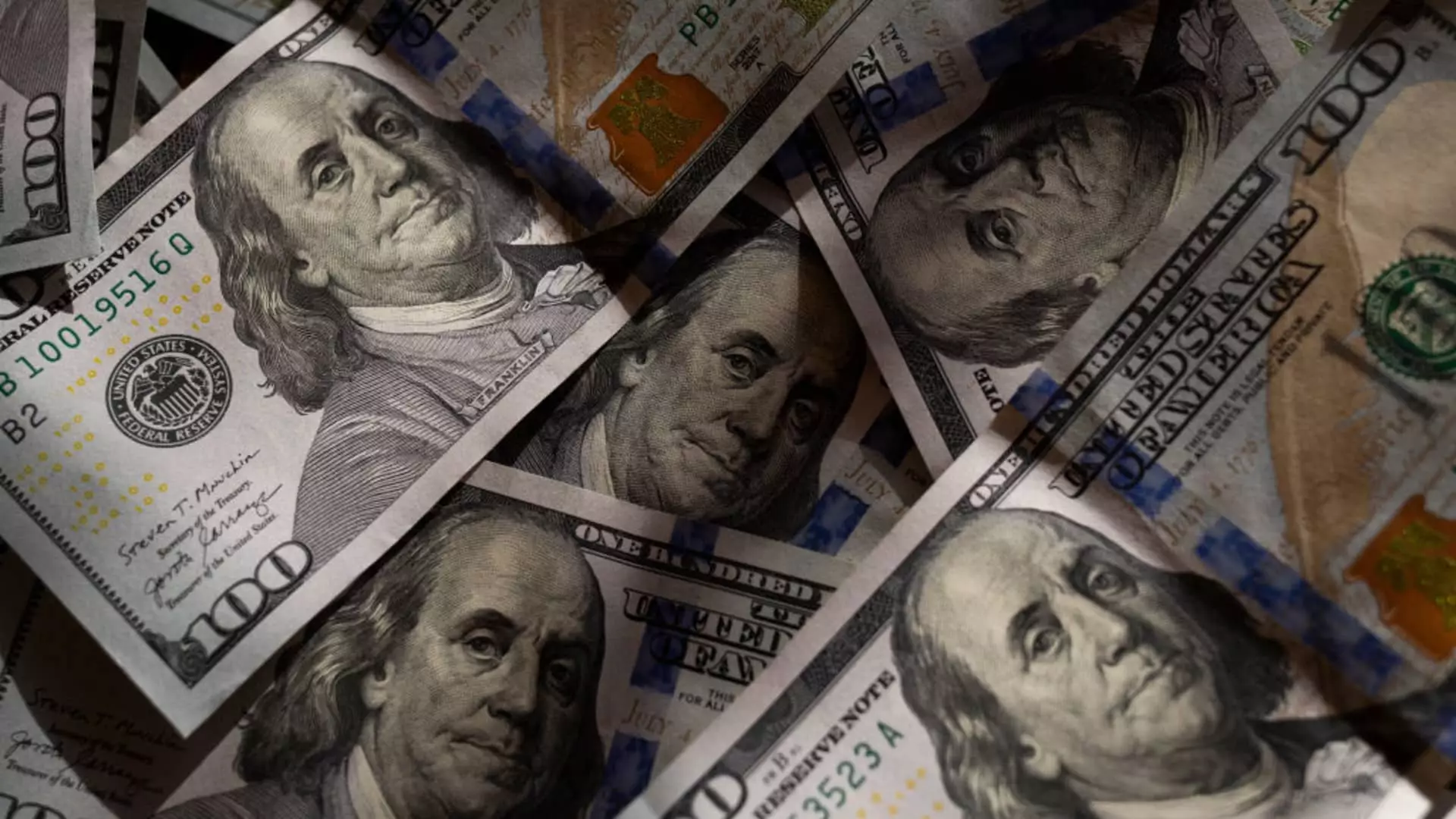The U.S. dollar, once the bedrock of global finance, finds itself on a precarious downward trajectory. The recent decline of over 9% in the dollar index this year is not merely a statistic; it is a harbinger of potential turmoil that reverberates through economies worldwide. The central banks, previously criticized for their sluggish responses to economic changes, now grapple with the implications of this currency shift. With a mere glance at the most recent Bank of America Global Fund Manager Survey revealing a striking 61% of participants predicting the dollar’s depreciation over the next year, it becomes glaringly apparent: confidence in the dollar is eroding.
This flight from the dollar into alternative currencies speaks volumes about investor sentiment. The dollar’s fading strength poses complex challenges, revealing an intricate web of economic factors that influence global monetary stability. Economists have long pointed out that a weak dollar can bring about higher imported inflation, which, paired with the ongoing inflationary pressures felt globally, raises alarms for policymakers everywhere. The central banks’ collective sigh of relief may soon be followed by deep concern, given that the dollar’s vulnerability translates into volatility for emerging economies heavily reliant on dollar-denominated debt.
The Currency Cascade: Who Benefits and Who Suffers?
As the dollar slides, the natural consequence has been an appreciation of various other currencies. Safe havens like the Japanese yen and the Swiss franc have surged, thriving amid the chaos. The yen alone has appreciated over 10% against the dollar, a figure that, while boon for Japan’s currency stability, raises pressing concerns about Japan’s export competitiveness. Export-led economies, particularly in Asia, are walking a tightrope: the stronger their local currencies against the dollar, the pricier their goods become on the global stage. This contradiction encapsulates the broader conflict that emerging markets face.
While some currencies, like the Mexican peso and the Canadian dollar, navigate the situation relatively unscathed, others such as the Turkish lira and Vietnamese dong tumble into perilous lows. As economies like Turkey’s confront soaring inflation amidst a depreciating currency, the social consequences are dire — rising unemployment and social unrest become an ever-looming threat. The struggle for these nations is exacerbated by the need to tread carefully, as any misstep in monetary policy could invite capital flight, further destabilizing their already fragile economies.
Central Banks at the Crossroads: Opportunities or Risks?
Despite the challenges posed by a weak dollar, central banks globally now find themselves in a unique position. A declining dollar can ease real debt burdens for countries grappling with excessive dollar-denominated debt. This relief may provide the necessary breathing room for central banks to reduce interest rates and engage in stimulus measures without the immediate threat of currency depreciation. Yet, this complacent view is naive at best. The interconnectedness of global markets means that decisions taken in one region can spark ripples that lead to unintended consequences elsewhere — a precarious balancing act.
For instance, while the European Central Bank has capitalized on the situation by cutting rates amid declining inflation, it must remain vigilant against potential retaliatory moves from the U.S. With the looming specter of renewed tariffs under the U.S. administration, Asian economies could find themselves in a precarious position, trapped between the necessity of a weak currency to boost exports and the risk of retaliation from aggressive trade policies.
Analysts warn that the path to currency devaluation is fraught with danger. Wael Makarem’s assertion regarding the volatility associated with emerging markets perfectly encapsulates this sentiment. Countries may find they have no choice but to act in self-defense — but how far can they go without inviting the wrath of the U.S. administration’s potential retaliation? The delicate balance of international relations makes straightforward corrective measures almost impossible to achieve without engendering further conflict.
Geopolitical Geometries: The Role of Trade Negotiations
The future of these currency dynamics rests in the hands of geopolitical negotiations. While some may pursue this moment of flux as an opportunity for engaging in trade dialogues, the fear of U.S. trade measures looms large. As Brendan McKenna aptly points out, the aftermath of these discussions may determine how nations navigate their currency policies moving forward. Should negotiations yield a reduction in tariffs, the pressure to devalue local currencies may ease. However, if tensions escalate, we could plunge into a cycle of protectionism that fundamentally alters the landscape of global trade.
The specter of currency manipulation accusations and retaliations remains a significant risk that few governments are willing to entertain. For now, the prevailing wisdom appears to steer clear of a currency war that could spiral out of control, affecting not just individual economies but casting shadows on the entire global financial architecture.
The dollar’s slow decline signals troubling times ahead, with interwoven global repercussions poised to reshape international markets. As the fight against inflation intensifies, central banks must navigate these choppy waters with utmost caution while holding onto the hope that constructive engagement rather than adversarial confrontation will steer the world towards more stable economic shores.


Leave a Reply